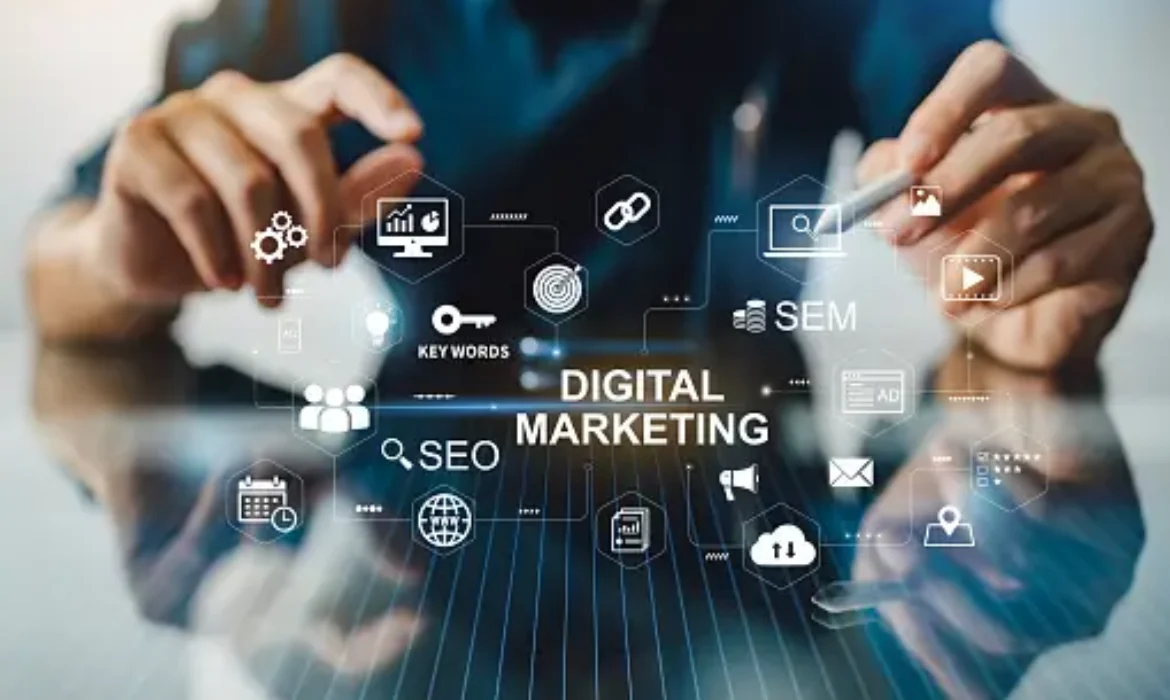081-4797-7173
The world has over decades gone from its segmented limited spaces to a digital world. The distance dividing occupants of the world has been bridged by the digital age. And businesses have grown in exchange of goods and services.
For startups who are newly venturing into their various markets, distance and visibility have been major challenges, leading to failure at the early stage and accounted loss of profits and startup resources. But, digitalization has come to their rescue in the form of Digital Marketing.
According to a 2019 World Economic Forum report, only 8% of African startups make it to the Series B stage of funding. And BusinessDay newspaper says the rate of startup failure in Nigeria is at 61.07%, the highest among the top three investment targets in Africa.
To give credibility to the idea of digital marketing, Mint, owned by Neil Patel, is a testament of the prowess of digital marketing. Despite being relatively lesser-known compared to its well-established predecessors, the company dedicated itself to a digital strategy, producing numerous top-tier content pieces.
These encompassed informative blog posts as well as viral and captivating info-graphics, all aimed at propelling their business growth. As a result of Mint’s digital marketing efforts, the tool gained a massive online following before being sold to Intuit for a whopping $170 million.
In this article, you will learn digital marketing and how it works to help startups create a place in their various business sects.
WHAT IS DIGITAL MARKETING?
Digital marketing refers to the use of digital channels, platforms, and technologies to promote products, services, or brands to a target audience. It encompasses a wide range of online strategies and tactics aimed at reaching and engaging potential customers through various digital mediums.
The goal of digital marketing is to connect with the right audience, build brand awareness, drive website traffic, generate leads, and ultimately convert those leads into customers.
HOW DOES DIGITAL MARKTING WORK?
Below is a rundown of some components of digital marketing also known as digital strategies, and how to implement them for your startup:
Search Engine Optimization (SEO):
In simple terms, SEO means the process of improving your website to increase its visibility in Google, Microsoft Bing, and other search engines whenever people search for products you sell and services you provide.
Organic search which delivers 53% of all website traffic is a major reason why the global SEO industry is forecast by Research and Markets to reach a staggering $122.11 billion by 2028.
You can effectively implement SEO by:
1. Conducting keyword research to identify relevant search terms.
2. Optimizing on-page elements (titles, Meta descriptions, headers) with keywords.
3. Creating high-quality, valuable, and shareable content.
4. Building high-quality back-links from reputable websites.
Content Marketing:
Entrepreneurs in a bid to advertise create content to attract, engage, and retain an audience by sharing articles and videos related to their products. Content marketing examples include media like newsletters, blog articles, social media posts, and videos.
All of these contents intend to provide useful and relevant information that attracts them to a brand.
You can effectively implement Content Marketing by:
1. Identifying your target audience and their needs.
2. Creating a content calendar with a mix of blog posts, videos, etc.
3. Promoting your content through social media, email newsletters, and relevant online communities.
4. Using storytelling and visuals to make your content compelling.
Social Media Marketing:
This form of internet marketing uses social media apps as a marketing tool. These social media platforms such as Facebook, Twitter, LinkedIn, Instagram and WhatsApp enable brands to connect with their audience to build a brand, increase sales, and drive traffic to a website.
You can effectively implement Social Media Marketing by:
1. Choosing the right platforms based on your audience’s preferences.
2. Developing a content plan with original content.
3. Engaging with your audience by responding to comments and messages.
4. Using paid social media advertising to target specific demographics.
Pay-Per-Click Advertising (PPC):
Do you know? Advertisers can pay each time a user clicks on their online ads in this form of online advertising. That is what pay-per-click advertising is. It comes in different forms, one of which is the paid search ad.
These ads appear when people search for things to buy online using a search engine like Google.
You can effectively implement Pay-Per-Click Advertising by:
1. Defining your campaign goals and target audience.
2. Choosing relevant keywords for search ads or demographic targeting for social ads.
3. Creating compelling ad copy and visuals.
4. Setting a budget and bid strategy, and continuously monitor and optimize your campaigns.
Email Marketing:
This form of marketing uses emails to make your customers aware of your new products, services, and promos. Business owners send promotional emails and updates to a massive email list.
Litmus avers that email generates $36 for every $1 spent, meaning email marketing ROI is 3600% and 18% of companies achieve email marketing ROI greater than $70 per $1 invested.
You can effectively implement Email Marketing by:
1. Building and segmenting your email list based on subscriber preferences.
2. Creating personalized and engaging email content.
3. Using attention-grabbing subject lines.
4. Testing different sending times and frequency.
Influencer Marketing:
Have you seen online influencers? They are people who have a significant online following. Business owners leverage this form of marketing to promote products and services.
With the increasing use of the internet and in a bid to avoid hassles that characterize buying from distant places, people in Nigeria are embracing online shopping which includes delivery to their various locations.
You can effectively implement Influencer Marketing by:
1. Identifying influencers relevant to your industry or niche.
2. Building relationships with influencers and establish collaboration terms.
3. Developing a campaign that aligns with both your brand and the influencer’s style.
4. Monitoring and measuring the results of the influencer campaign.
The experiences of startups can vary widely based on factors such as industry trends, market conditions, government policies, and product uniqueness. While the journey can be daunting, the ability to innovate, adapt, and persist often contributes to their success.
Are you an owner of a startup which has a growth potential but has limited resources and are seeking to dominate market you’ve ventured into or build an online presence?
It is imperative to leverage the innovation of Digital Marketing to scale business hoops, beat risks and uncertainties in the litheness of the entrepreneurial spirit, especially in this 21st Century.






